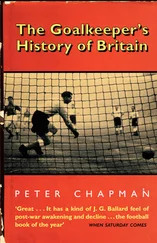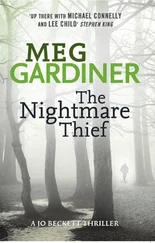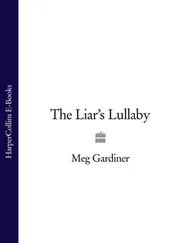The 1934 Unemployment Act spurred the NUWM to organise another national march. Given that it was to take place ‘in the dead of winter [starting in January], it is essential that proper provision be made for every marcher having stout clothes, good boots and coat, as well as a real Army pack’. Cobblers must accompany every contingent (they would repair boots overnight), and for those coming from Scotland, the North-East, Lancashire and Yorkshire, who would be on the road for more than ten days, hot food would have to be provided. This meant a one- or two-ton truck to transport the field kitchen, which was ‘like an old washin’ house boiler on the back of a lorry’, according to one Scottish marcher. An ‘ambulance unit’ would also be on hand to cope with the inevitable spate of blisters and other medical emergencies. Every marcher was to be provided with a copy of the Unemployment Bill and the twelve-page Manifesto of the National Hunger March and Congress so that he or she would know exactly why they were marching and what for. Generally, money was more forthcoming than it had been on earlier marches. The Tyneside marchers left with generous donations from various Durham mining lodges, and even the impoverished lodges of South Wales managed to scrape together some funds for their representatives. The Scottish contingent collected £45 in the streets of Coventry and £20 in Birmingham, while in Warrington £55 was dropped into the rattled tins of the Lancashire marchers, and they left Oxford £120 better off.
Women were in a very small minority among the membership of the NUWM. ‘But there were several capable women who were very active,’ recalled Finlay Hart. And when it came to the Hunger Marches, ‘We didn’t like women with the men in case there was any scandal,’ according to Harry McShane, the Scottish NUWM organiser. ‘There was a woman’s contingent … and they marched a separate route.’ ‘We never saw any of the men on the March,’ remembered Mary Johnston, who had been unemployed for over a year when she joined the Scottish women en route for London in 1934. ‘We never had any contact with them. I don’t suppose we ever thought of questioning them. I don’t recollect any discussion on the point at all. And of course it would be quite a good thing, really, if the men were using a separate route.’
It was considered that a march from Glasgow to London would be too taxing for the thirty or so Scottish women, so the men ‘set off a week or two before us … but … we would have a send off from Clydebank and we’d get a bus from Glasgow to Derby and join up with the other women, mainly the women from Northern England, Lancashire,’ making a contingent of around a hundred. But Emily Swankie, who had decided with her husband John that as the Labour Exchange would have stopped his money if he’d joined the 1934 march (as he would not be available for work if he was on the road — a requirement of drawing benefit) she would march instead, since she was also unemployed. The first day out from Derby
we walked sixteen miles … we found that sixteen miles is quite a distance for people not used to marching. And if like me you were in a new pair of shoes, it wasn’t funny … We never did sixteen miles again. The next day it was twelve miles. And then we cut it down to eight … We had black stockings which we were asked to wear all the time … they frowned on bare legs. No bare legs on the Hunger March … There was a wee bit of puritanism there too, but it was that they wanted to avoid at all costs any bad publicity — women marching with bare legs … There were long hours of walking and nothing really happened, passing through villages, people coming out to look at us, curious, interested some of them, not very curious, some of them not very receptive … But where we did have receptions, it was great. We had the Co-operative Guild women, some Church Guild women, Labour Party women and Communist Party women. They had made up reception committees for us … sometimes they had brought in home baking, and they got us bedded down in halls etc. for the night. In one place they anticipated we wouldn’t be very well fed the next day because they knew the area through which we were going. And they made us big bowls of hard-boiled eggs. We had to stuff our pockets with them because it was on the cards that we wouldn’t eat next night. And they sent in basins with Lysol — that was the old disinfectant for your feet … we were very kindly received.
Like the men, the women always marched in step when they got to a town. ‘You march better when you’re tuned in with other people,’ thought Marion Henery. And it looked more organised and purposeful. As with the men, it was sore feet that were the main problem for the women: ‘The Lancashire women wore clogs. You heard the clatter of the clogs but they never had any trouble with their feet … but a lot of other women had problems with heel blisters.’ The women ‘had to sleep in workhouses quite a number of times … we had always to give our names. The women on the March didnae take kindly to this. So a lot of fictitious names were given — Mary Pickford [the American film star of the silent screen] and names like that.’
Although the Labour Party and the TUC leadership continued to label the NUWM as the Communist party in disguise and to reject attempts to build a ‘United Front’ against unemployment (though the ILP, which had recently disaffiliated from the Labour Party and would wither henceforth, heeded the call), there was more support among the rank and file this time. The South Wales contingent, for example, had the support of almost all the Labour MPs in the area and many of the local union branches and trades councils for the 1934 march. Reception committees were more likely to turn out as the marchers neared towns, and were more prepared to offer food and accommodation. Many committees included a clergyman who might offer his church hall, or even his church, for the night. However, the reception en route was mixed: as the marchers tramped through Windsor, servants working at the castle threw them money, but at Reading, where there was no reception committee, they had to bed down on used straw in a cattle market.
As the marchers neared Oxford they found ‘students were standing on the side o’ the road with bundles o’ walking sticks and handin’ them to us as we passed again after the police [who had confiscated the marchers’ sticks] was away. They were sympathetic students, no’ Communists or anything like that. But they’d seen what we were goin’ through and they decided we needed sticks for walkin’,’ recalled Frank McCusker. Duff Cooper, who was Financial Secretary at the War Office, was appalled, and said in the House of Commons that he hoped that the university authorities would know how to deal with these undergraduates who fell into step with the Hunger Marchers. When he came to speak at the Oxford Union few weeks later Cooper was challenged about his remarks by Anthony Greenwood, known in Oxford as the ‘young Adonis of the Labour Party’, the son of Arthur Greenwood, who had been Minister of Health in the 1929 Labour government, but had declined to join the National Government. ‘It is a vile thing,’ Cooper replied, ‘to encourage these poor people, under-fed, ill-clothed, to set out in bad weather, marching the roads to London, knowing perfectly well that they would get nothing when they got there. In a university with traditions, it was a suitable case for the authorities to interfere with the young fools who lost their heads and their sense of proportion.’
The Labour politician George Lansbury was the other speaker, and he disagreed, welcoming the fact that ‘Christian charity’ still existed among the undergraduates. It was capitalism that had failed to do anything for its victims, ‘and that is the greatest condemnation of the system that can be offered’. The President of the Union, the socialist Frank Hardie, questioned the right of Oxford undergraduates to have £2,000 spent on their education while others were pitchforked into the labour market at fourteen. The motion that ‘This House believes that in Socialism lies the only solution to the problems of this country’ was passed by 316 votes to 247.
Читать дальше












